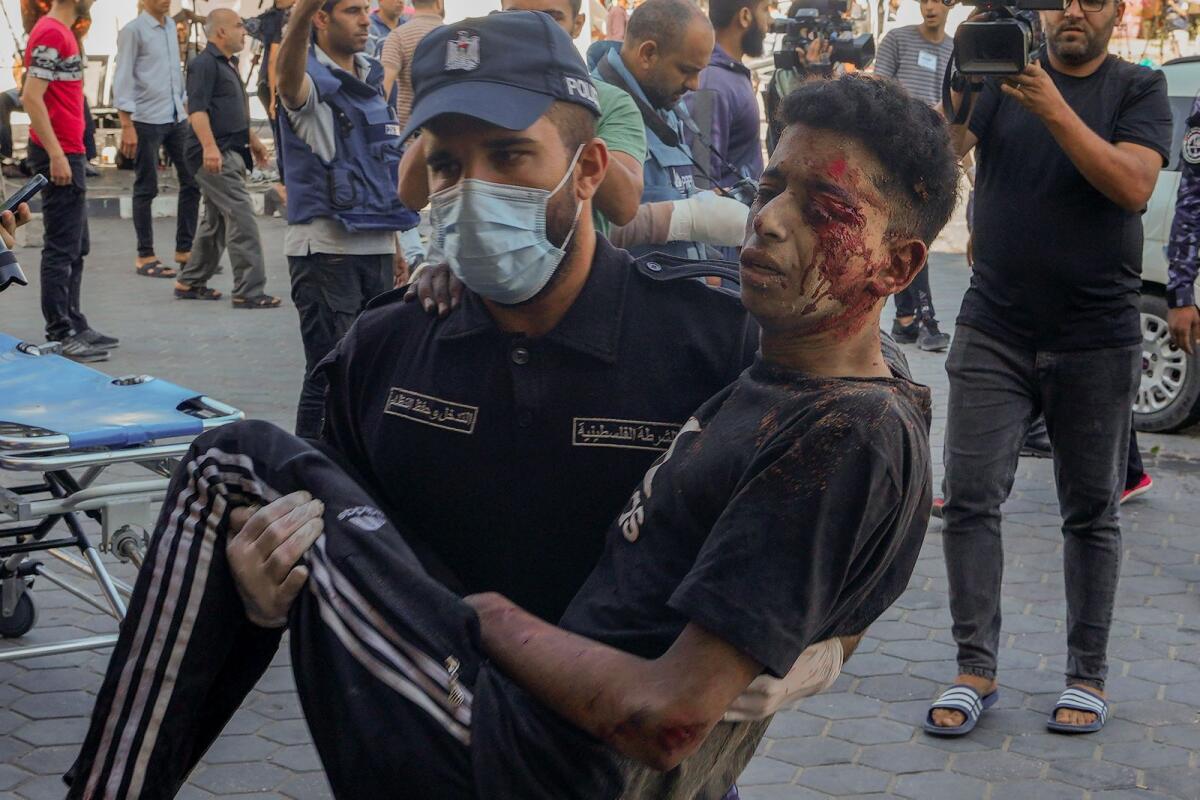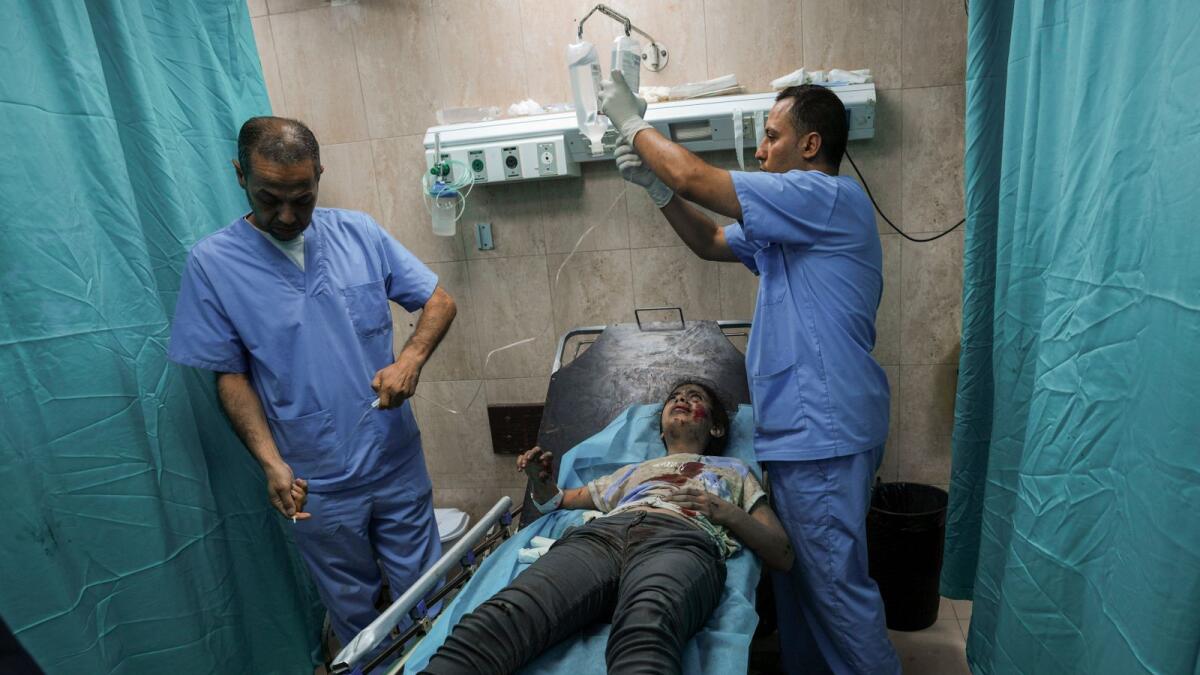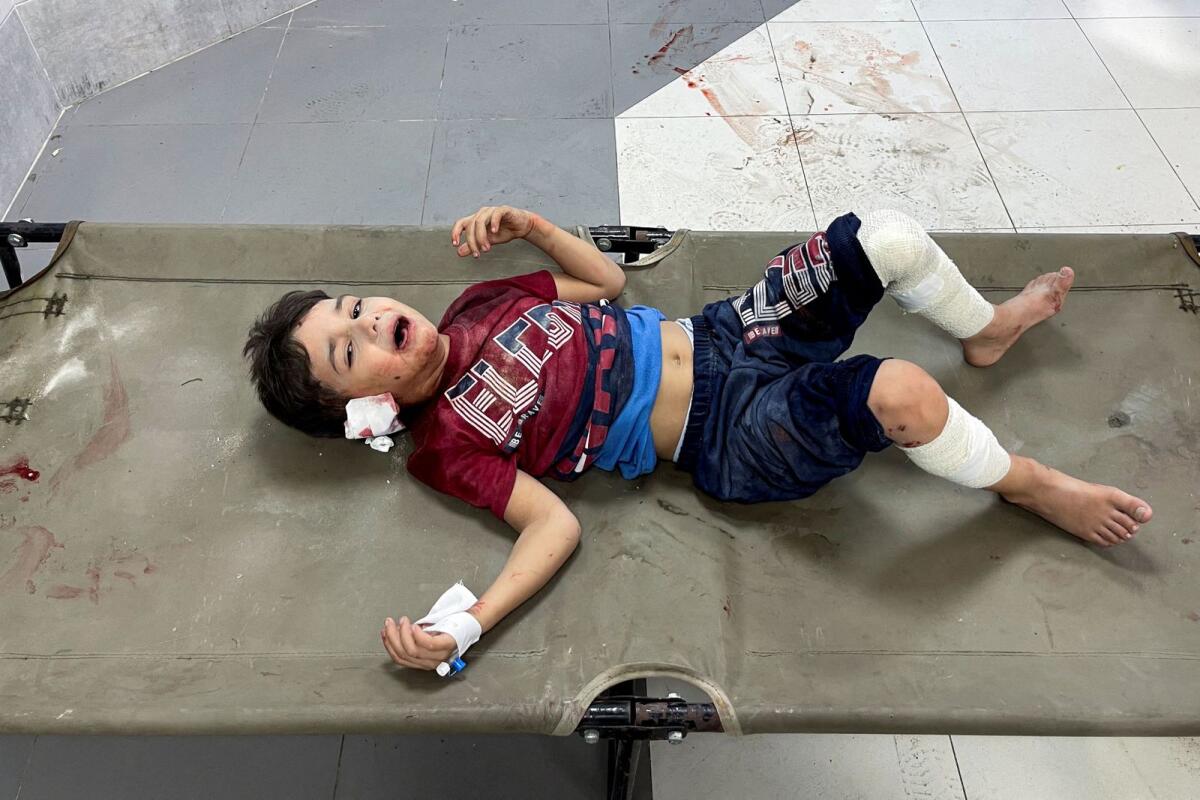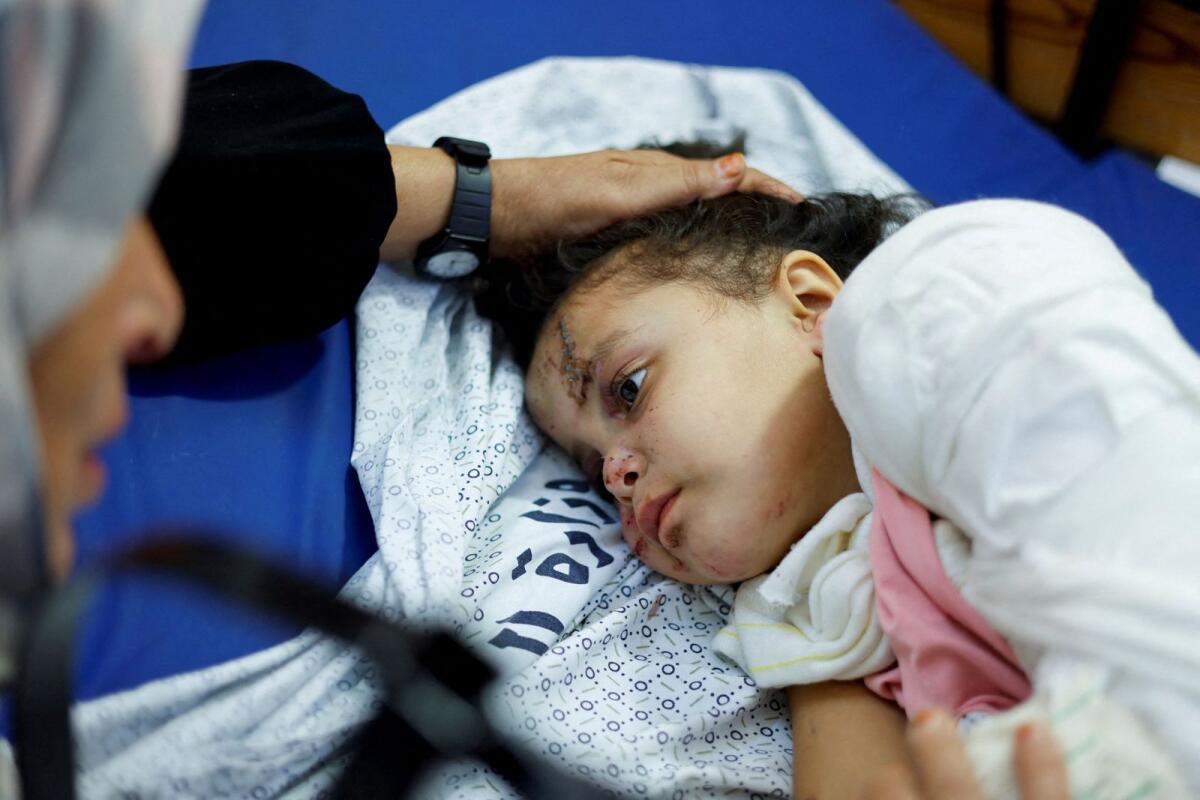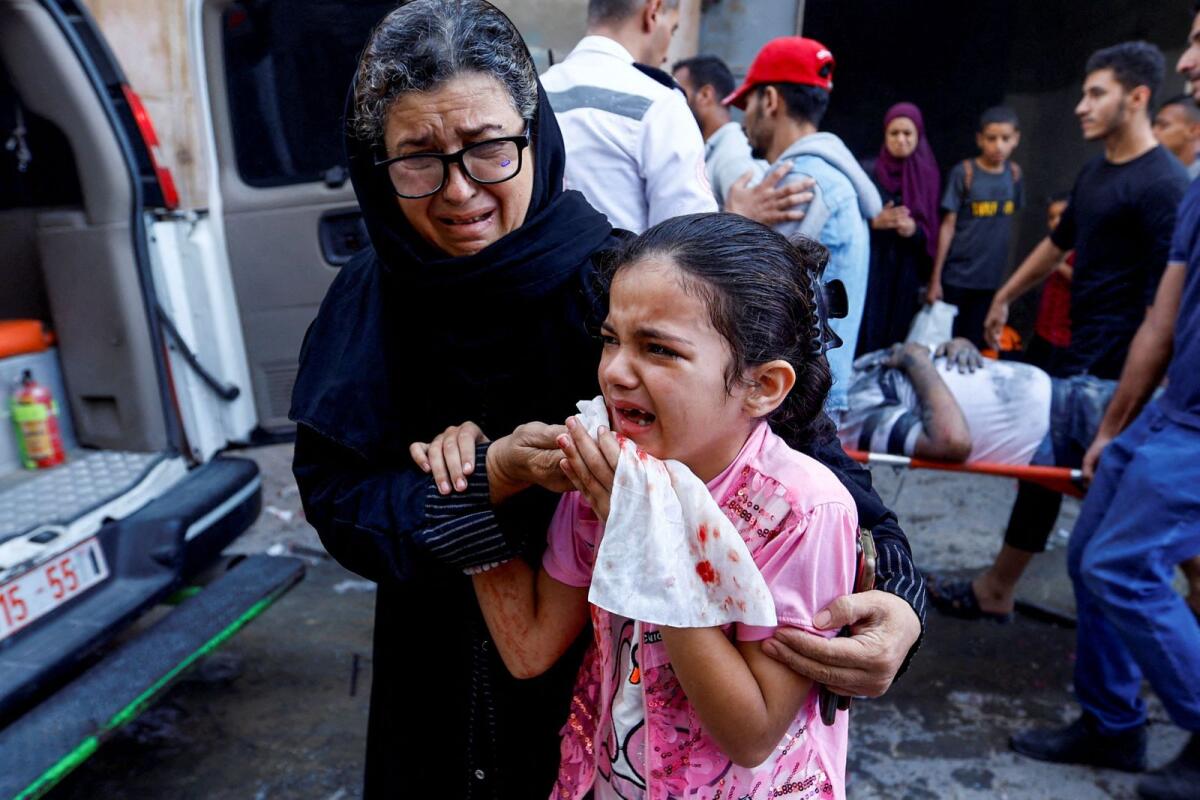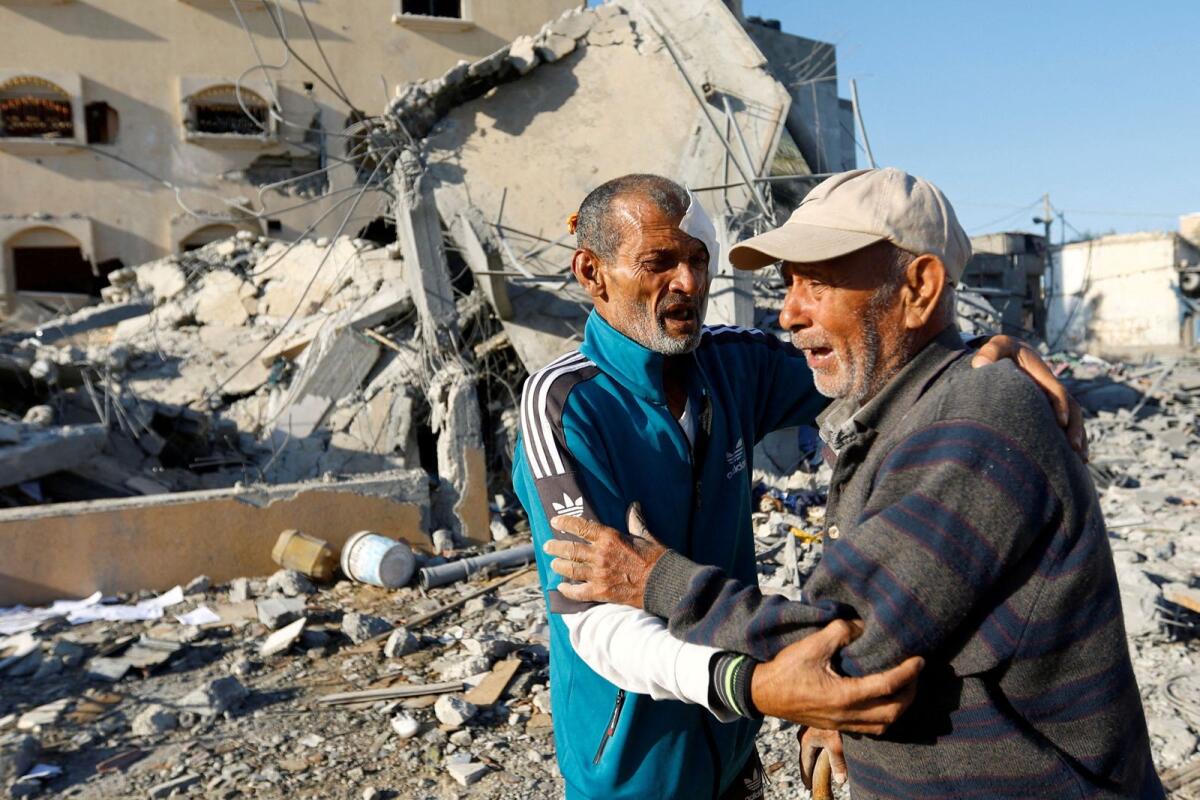In Gaza, dire warnings from medics highlight the potential for thousands of casualties as hospitals face a critical shortage of fuel and essential supplies. The population is grappling with a scarcity of food, water, and safety amidst expectations of an Israeli ground offensive triggered by Hamas’ recent attack.
Israeli forces, with support from an increasing presence of U.S. warships in the region, are stationed along Gaza’s border, preparing for what Israel describes as a comprehensive operation to dismantle the militant group. Despite a week of intense airstrikes that have razed entire neighborhoods, militant rocket attacks on Israel persist.
The Gaza Health Ministry reports that since the conflict began, 2,329 Palestinians have lost their lives, surpassing the casualties of the 2014 Gaza war. For Israel, this marks the deadliest war since 1973, with over 1,300 Israelis killed, primarily civilians targeted in a Hamas attack on October 7.
The precarious situation in Gaza is compounded by the imminent depletion of generator fuel in hospitals, which the United Nations warns will jeopardize the lives of thousands of patients. The Gaza power plant has ceased operations due to fuel shortages, exacerbated by Israel’s complete closure of the territory following the Hamas attack.
Hospitals, like Nasser Hospital in Khan Younis, are overwhelmed with critically injured patients, including many young children. The fuel supply for these facilities is expected to run out within days, posing a grave threat to the entire healthcare system.
In Gaza City, Shifa Hospital, the largest in the region, faces the grim reality of mass burials due to an overflowing morgue, with tens of thousands of displaced individuals seeking refuge in its compound.
Amid this unfolding crisis, the United Nations and humanitarian organizations warn of immense human suffering caused by the mass exodus within Gaza and the ongoing Israeli siege. The World Health Organization fears that the evacuation could become a death sentence for over 2,000 patients in northern hospitals.
Efforts are being made to reopen the Rafah crossing between Egypt and Gaza for the safe exit of foreigners and the delivery of humanitarian aid, but the crossing remains closed.
Israel has demanded the release of captives as a precondition for lifting the siege, leading to emotional protests by relatives of those captured by Hamas in Israel and taken to Gaza.
In southern Israel, residents in towns like Sderot are evacuating due to continuous rocket fire, with many finding shelter elsewhere in the country.
Hezbollah fighters in Lebanon engaged in hostilities along the border with Israel, resulting in casualties, escalating regional tensions.
Israel has called up hundreds of thousands of military reserves and amassed troops and tanks along the Gaza border in preparation for a broad offensive. Rocket attacks from Gaza continue, prompting Israeli airstrikes.
U.S. Defense Secretary Lloyd Austin announced the deployment of a second carrier strike group to the eastern Mediterranean to deter potential regional escalation.
Hamas remains steadfast, with its leaders expressing resilience in the face of ongoing conflict. The situation remains highly volatile, with the specter of a ground invasion looming, raising concerns about further regional involvement.
